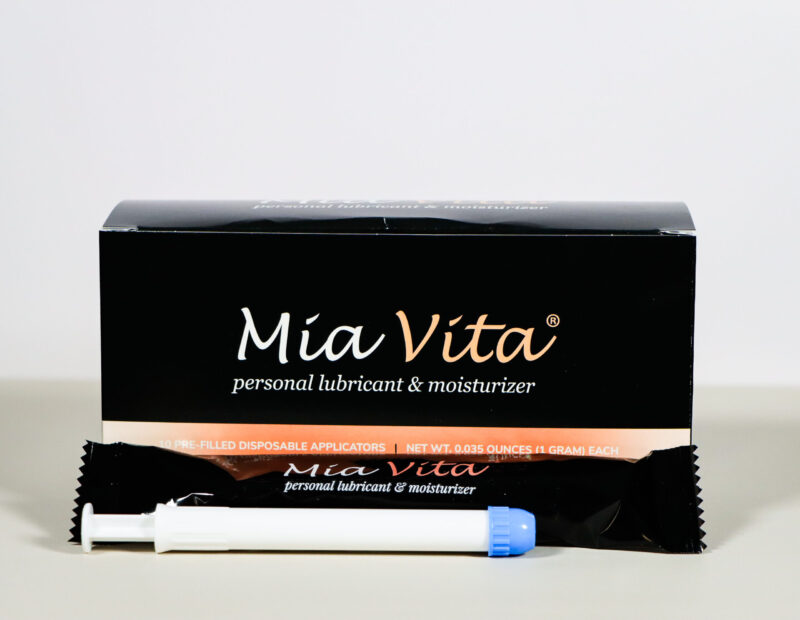Sex can change dramatically for a woman in different stages of life. Happily, it’s possible to have a fulfilling and satisfying sex life no matter the challenges or where you are in your life’s arc. The following information can help you work through a current issue or prepare for the road ahead.
Post-Partum
After the biological marathon that is pregnancy and childbirth, a new mother can feel elated, exhausted, sore, and mentally and emotionally drained all at the same time.
For the sake of recuperation and to avoid health complications experts recommend waiting four to six weeks to allow your body to fully heal and to avoid causing health complications.
Here are some things you might experience and tips for managing them as you navigate your post-partum sex life:
Vaginal Dryness – is common post-partum due to hormonal changes and breast-feeding. Counteract it by using a lubricant, emptying your bladder before sex, or exploring other creative ways to be intimate that don’t involve vaginal intercourse.
Feeling Stretched Out Down There – over the course of a pregnancy, pelvic floor muscles stretch to accommodate the baby. After delivery, they might be slow to find their pre-pregnancy positions. Lax, loose muscles can make sex feel uncomfortable. Pelvic floor exercises, such as Kegels, can help restore pelvic muscle tone. Consider seeing a pelvic floor physical therapist to assist you.
Pain During Sex – a condition known as dyspareunia, affects as many as 43% of women up to 6 months after giving birth. A variety of therapeutic approaches can help, including vaginal lubricants, dilators, pelvic floor exercises, scar tissue massage, and myofascial release (trigger point therapy) to relieve contracted pelvic floor muscles.
Lack of Interest in Sex – can happen for all of the above-mentioned reasons, as well as the steep learning curve (and controlled chaos) that go along with taking care of a newborn. Counseling can help identify and resolve symptoms of post-partum depression that may be lurking.
Perimenopause and sex
Declining hormone levels can lead to discomfort or pain during sex and decreased sexual desire. It’s estimated that nearly 27% of perimenopausal women in relationships have sex less than once per month. But it doesn’t have to be that way. There are proven solutions to rejuvenate your sex life during perimenopause. A few of the main problems to look out for include:
Depression and Body Image Insecurity – can lead to withdrawal from your partner and avoidance or disinterest in sex. Counseling can resolve these issues. Additionally, couples counseling can help improve communication between partners around this transitional time in a woman’s life.
Suffering in Silence – due to reluctance to discuss these issues, which often stems from ingrained cultural or societal norms. It’s important to speak up and, if necessary, find a new doctor who will listen.
Pelvic Floor Dysfunction – from overly lax or contracted pelvic floor muscles, or both. Ebbing hormone levels amplify these structural imbalances, which makes you more likely to experience problems during sex. All aspects of sexual function can be affected, including everything from libido to the ability to have an orgasm.
A variety of therapies help with pelvic floor dysfunction including Kegel exercises, pelvic physical therapy, yoga, biofeedback, vitamin supplementation, and botox injections. If the problem persists, hormone therapy is an option to discuss with your doctor. Additionally, several types of surgery can help, when needed.
Menopause and sex
During menopause, the effects of declining hormone levels are often compounded by general aging-related health effects that appear during this time. All of this can leave a woman feeling discouraged and disinterested in sex.
Even though studies show many women in midlife regard sexuality as an important part of their lives, women rarely discuss these issues with their doctors. Healthcare providers fall short, as well, often lacking knowledge or assuming that sexuality is not important for women in this stage of life.
However, once the decision is made to seek help, numerous treatment options are available. Many of the same conservative treatment approaches apply for women in menopause, as described above.
In addition, menopause-specific options may apply, depending on your health history, including:
- Local estrogen therapy, which is the standard of care for sexual dysfunction in menopausal women. By contrast, estrogen replacement therapy has shown only moderate benefits for improving sexual function.
- Testosterone therapy,which can be used by itself or in conjunction with hormone replacement therapy.
Menopause-specific health considerations include:
- History of hormone-dependent cancer, which generally rules out hormone therapy as an option.
- Concurrent health conditions, such as diabetes, thyroid disorders, cardiovascular conditions should be addressed and managed.
Finally, regular sexual activity creates a virtuous cycle that stimulates blood flow to pelvic organs and promotes vaginal health. With some helpful resources and open communication, a great sex life is possible no matter your age or stage of life.
FemmePharma has been helping women navigate menopause for over two decades. No matter where you are in your journey, you deserve to have knowledgeable, intimate healthcare partners to help you feel your best. Explore our other articles, podcast episodes with women’s health experts, and products to ease your transition into menopause.



